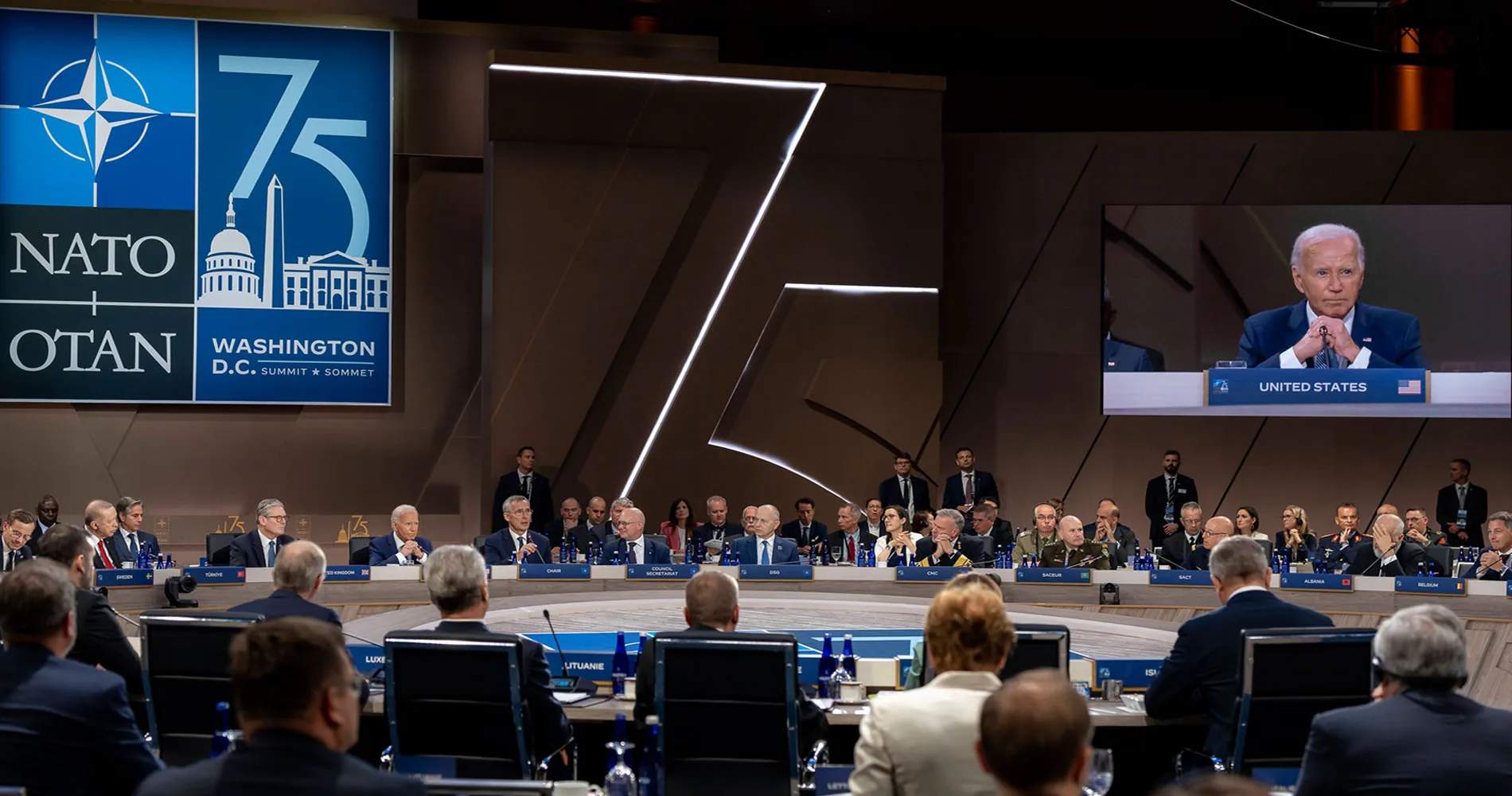As quantum technology emerges, the US and China are racing to achieve quantum supremacy and harness quantum computing’s powerful defense, modelling, and cybersecurity potential.
Allison Westervelt, 6 July 2022.
The United States and China are racing to achieve supremacy in the new field of quantum technology. With quantum technology’s vast potential in the military, security, and scientific fields, falling behind could create national security risks for both countries in the future, which has prompted them to invest in this rapidly developing technology. Now, both the US and China are leaders in the field, boasting remarkable achievements and sponsoring premier research institutions on quantum technology.
Quantum computing is a new and powerful technology that utilizes quantum mechanics to solve problems that are too complicated for conventional computers. While a modern computer can only perform one calculation at a time, quantum computers can execute many calculations simultaneously, making quantum computers 158 million times faster than the most advanced supercomputer that exists today.
The additional computational capability of quantum computers provides many additional benefits in the defense, modelling, and cybersecurity fields. For example, quantum computers can offer enhanced modeling scenarios for financial investment portfolios, create accurate simulations of biochemical reactions for drug discovery, reveal hidden submarines and guide devices without a GPS signal, and allow classified information to be transmitted securely.
However, while quantum computing could safeguard transmitted information from hackers, it poses dangers for countries which have not invested in developing the technology. It could, e.g., be weaponized to decrypt messages transmitted using conventional encryption methods, giving adversaries access to critical information about foreign intelligence and military operations.
As China recognized early the potential of quantum technology, the US and other countries are currently playing catch-up. China’s government sought to become an international leader in the field by investing in quantum technology research as early as 2016, while the United States did not implement its National Quantum Initiative until 2018. As part of its 13th five-year plan released in 2016, China declared quantum communication and computing to be a priority area for its government innovation strategy, and in 2017 it announced plans to invest USD 10 billion in the National Laboratory for Quantum Information Science.
China’s quantum technology policies have catapulted it to the top in quantum communications, as it became in 2016 the first nation to launch a quantum satellite that permits the transmission of completely secure long-range messages. In 2019, China added to this achievement by establishing an integrated quantum communication network that connects two satellites to fiber optic cables on the ground.
In 2018, the US Government passed the National Quantum Initiative, which laid out a national plan, with a funding of USD 1.2 billion, to develop quantum computing as well as a framework for government entities to sponsor research in this area. As part of the National Quantum Initiative, the US Department of Energy earmarked USD 625 million to establish quantum information research hubs between 2020-2025.
US President Joe Biden demonstrated his commitment to advancing US quantum capabilities further by inking in May 2022 a National Security Memorandum (NSM) on “Promoting United States Leadership in Quantum Computing While Mitigating Risks to Vulnerable Cryptographic Systems” with the purpose of advancing US leadership in the quantum information sciences and mitigating the threat that quantum computing poses to US security. As part of a multiyear effort, the NSM provides a strategy for US government agencies to change vulnerable cryptographic systems to secure quantum cryptography.
In addition to the United States and China, Australia, Canada, India, Japan, Singapore, Russia, the United Kingdom, as well as several European Union countries including France, Germany, and Austria, have established or are developing national quantum computing strategies.
Even with so many nations striving to advance their quantum computing capabilities, the world is still a long way from replacing traditional with quantum technology. While experts have hypothesized that quantum computing would be the technology of the future as early as the 1980s, quantum computers remain largely experimental owing to their fragility and cost. In additional to being very expensive, quantum computers will behave erratically and fail unless they are operated at the exactly right temperate under precise environmental conditions. But given its potential, it is unsurprising that so many countries are eager to harness the power of quantum computing.






















